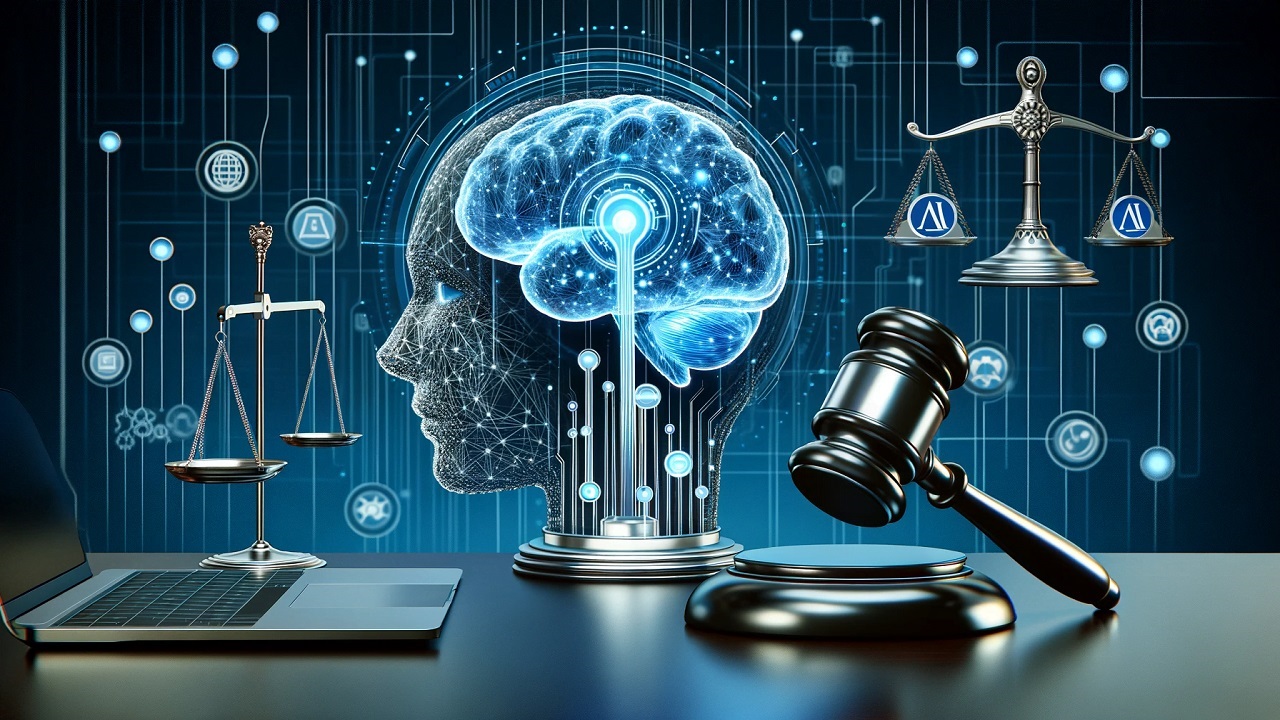AI and Copyright Law: Emerging Legal Contours
Context
The rapid advancement of Generative Artificial Intelligence (AI) has brought with it a host of legal, ethical, and intellectual property challenges. As AI systems increasingly use vast datasets—often including copyrighted material—to generate new content, questions have arisen globally about the legality and fairness of such practices. Recent court rulings, especially in the United States, are shaping the evolving legal landscape around AI-generated content and its implications for copyright law, content ownership, and creative markets.
Introduction
Generative AI models are trained on massive datasets comprising both public domain and copyrighted content. This has led to legal debates over whether such use constitutes copyright infringement or qualifies as fair use. While certain jurisdictions have started offering legal clarity, many questions remain unresolved, particularly in the context of pirated data, market impact, and intellectual property ownership. These challenges have important implications for countries like India, where existing laws are being interpreted to address emerging AI concerns.
Key Legal Developments and Issues
-
Recent U.S. Court Rulings
-
In Thomson Reuters vs Ross Intelligence, Bartz vs Anthropic, and Kadrey vs Meta, U.S. courts recognized that training AI on lawfully acquired texts can qualify as fair use, particularly when the output is transformative.
-
In the Anthropic case, the judge noted that AI training is similar to how writers learn from reading literature. However, the case was allowed to proceed regarding the use of pirated data.
-
In the Meta case, the court ruled in Meta’s favor, stating that the plaintiffs failed to prove that the AI outputs damaged the original market.
-
-
Legal and Ethical Concerns in AI Training
-
Generative AI may replicate or resemble copyrighted works, leading to disputes over market harm and transformative use.
-
The primary legal concern is whether such usage unfairly impacts the economic interests of original creators.
-
-
Global Legal Ambiguity
-
While the U.S. allows fair use, the EU and U.K. permit training under text and data mining (TDM) exceptions.
-
The absence of a harmonised international framework results in uncertainty, particularly when AI is trained on scraped internet data, mixing copyrighted and public domain materials.
-
-
Databases, IP, and Generative AI
-
Use of databases and published works for AI training raises issues related to copyright law, contract obligations, and privacy norms.
-
Many countries provide exceptions such as fair use, TDM, or temporary copying, but these vary and lack consistent judicial interpretation.
-
A key challenge lies in copyright law’s traditional requirement of human authorship, which generative AI fails to meet.
-
-
Legal Protection vs Piracy Risks
-
U.S. courts have affirmed that using copyrighted material for AI training may be protected under fair use.
-
However, the use of pirated content remains a significant legal risk.
-
Courts have emphasized the need for compensation mechanisms for copyright holders, especially when outputs affect their commercial value.
-
-
Implications for India
-
The ongoing ANI vs OpenAI case is testing the application of India’s Copyright Act, 1957, in the AI context.
-
The Act grants exclusive rights to copyright holders—such as reproduction and adaptation—that require permission unless covered under Section 52’s fair dealing clause.
-
Although the law does not mention AI explicitly, legal opinion suggests the current legal framework is adequate to handle AI-related copyright issues.
-
India’s status as a signatory to major global IP treaties ensures recognition of works by legal entities and access to civil and criminal enforcement, including protections against digital rights violations.
-
Conclusion
As generative AI becomes more sophisticated, legal systems across the world are grappling with its implications for copyright, intellectual property, and creative markets. While countries like the United States are beginning to offer legal clarity through court rulings, the issue remains complex due to global legal inconsistencies, especially concerning pirated data and the ownership of AI-generated content. For countries like India, the existing legal framework is being reinterpreted to address these evolving challenges, but there remains a pressing need for clear policy guidelines, judicial clarity, and possibly new legislative frameworks to keep pace with technological innovation.




Comments (0)